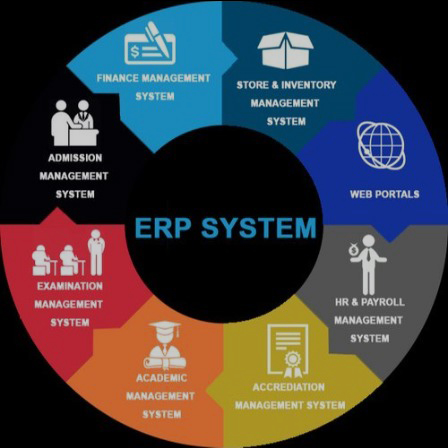ERP Online Systems: Revolutionizing Business Operations
In the fast-paced world of modern business, efficiency and agility are key to staying competitive. Enterprise Resource Planning (ERP) systems have long been a cornerstone for organizations looking to streamline operations and enhance productivity. With the advent of ERP Online systems, businesses now have access to even more powerful tools that leverage the flexibility and scalability of cloud technology.
Understanding ERP Online Systems
ERP Online systems refer to cloud-based platforms that integrate various core business processes into a unified system accessible via the internet. Unlike traditional ERP systems that require on-premise hardware and maintenance, ERP Online operates on a subscription model hosted in the cloud. This setup not only reduces upfront costs but also provides businesses with greater flexibility to scale their operations as needed.
Key Benefits of ERP Online Systems
- Cost Efficiency: By eliminating the need for expensive on-premise infrastructure and reducing IT maintenance costs, ERP Online systems offer significant cost savings. Businesses can subscribe to the services they require, paying only for what they use.
- Scalability: Cloud-based ERP solutions are inherently scalable, allowing businesses to easily adjust resources and functionalities as their needs evolve. Whether expanding into new markets or downsizing operations, ERP Online systems provide the flexibility to accommodate changes swiftly.
- Accessibility: With ERP Online systems, employees can access real-time data and functionalities from anywhere with an internet connection. This accessibility promotes collaboration across geographies and enhances decision-making processes by ensuring stakeholders have up-to-date information.
- Enhanced Security: Leading ERP Online providers invest heavily in data security measures, including encryption, regular backups, and robust access controls. This ensures that sensitive business information remains protected against potential threats or breaches.
- Improved Efficiency: By integrating various business functions such as finance, human resources, supply chain management, and customer relationship management (CRM) into a single platform, ERP Online systems streamline processes and eliminate silos. This integration reduces manual tasks, improves data accuracy, and enhances overall operational efficiency.
Industries Benefiting from ERP Online Systems
Manufacturing
Manufacturing companies utilize ERP Online systems to manage complex production processes, inventory control, and supply chain logistics. Real-time visibility into inventory levels and production schedules enables manufacturers to optimize resource allocation and meet customer demands more effectively.
Retail and E-commerce
In the retail sector, ERP Online systems facilitate seamless management of inventory across multiple sales channels, order processing, and customer relationship management. Integration with e-commerce platforms enables retailers to deliver personalized shopping experiences and respond swiftly to market trends.
Healthcare
Healthcare providers leverage ERP Online systems to streamline patient care processes, manage electronic health records (EHR), and improve billing accuracy. Centralized data storage and automation of administrative tasks enable healthcare organizations to focus more on patient care while ensuring compliance with regulatory requirements.
Professional Services
Consulting firms, legal practices, and other professional services benefit from ERP Online systems by optimizing project management, resource allocation, and client billing processes. Enhanced collaboration tools and real-time reporting capabilities improve service delivery and client satisfaction.
Implementation Considerations for ERP Online Systems
Successful implementation of ERP Online systems requires careful planning and consideration of several factors:
- Needs Assessment: Identify specific business requirements and processes that the ERP system will address. Conducting a thorough needs assessment ensures that the chosen solution aligns with organizational goals.
- Vendor Selection: Choose a reputable ERP Online provider with a proven track record in delivering scalable and secure cloud-based solutions. Evaluate factors such as system customization options, integration capabilities, and ongoing support services.
- Data Migration: Plan and execute a structured data migration strategy to transfer existing data from legacy systems to the ERP Online platform seamlessly. Ensure data integrity and security throughout the migration process.
- Training and Adoption: Invest in comprehensive training programs to familiarize employees with the new ERP Online system. Encourage adoption by highlighting the system’s benefits and providing ongoing support to address any user concerns.
Conclusion
In conclusion, ERP Online systems represent a transformative technology for businesses seeking to enhance efficiency, agility, and competitiveness in today’s digital era. By harnessing the power of cloud computing, organizations can streamline operations, improve decision-making processes, and achieve sustainable growth. Whether in manufacturing, retail, healthcare, or professional services, ERP Online systems empower businesses to optimize resources, enhance collaboration, and deliver superior customer experiences.
Embrace ERP Online systems today to unlock new opportunities for innovation and success in your industry. With scalable, cost-effective solutions tailored to meet evolving business needs, ERP Online systems pave the way for a more efficient and resilient future. Stay ahead of the curve by leveraging ERP Online technology to drive your business forward with confidence and agility.




